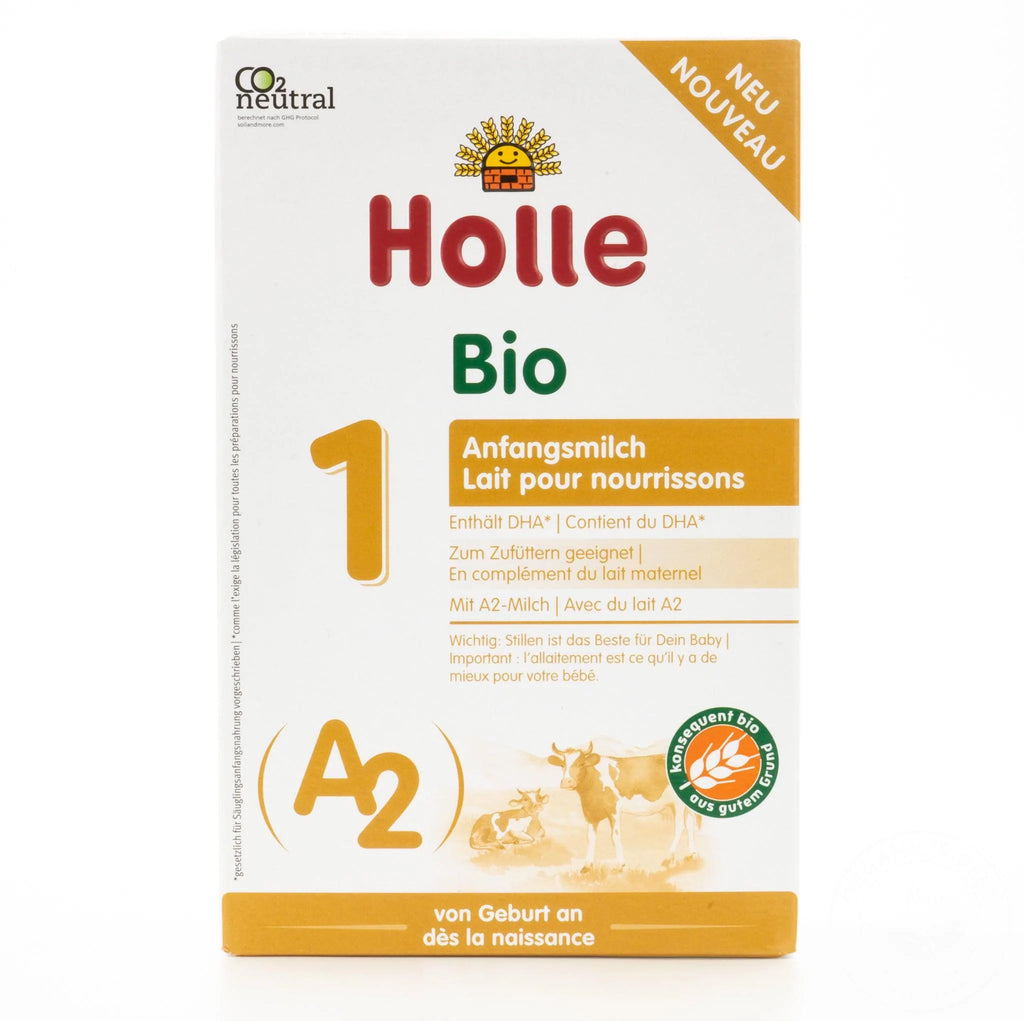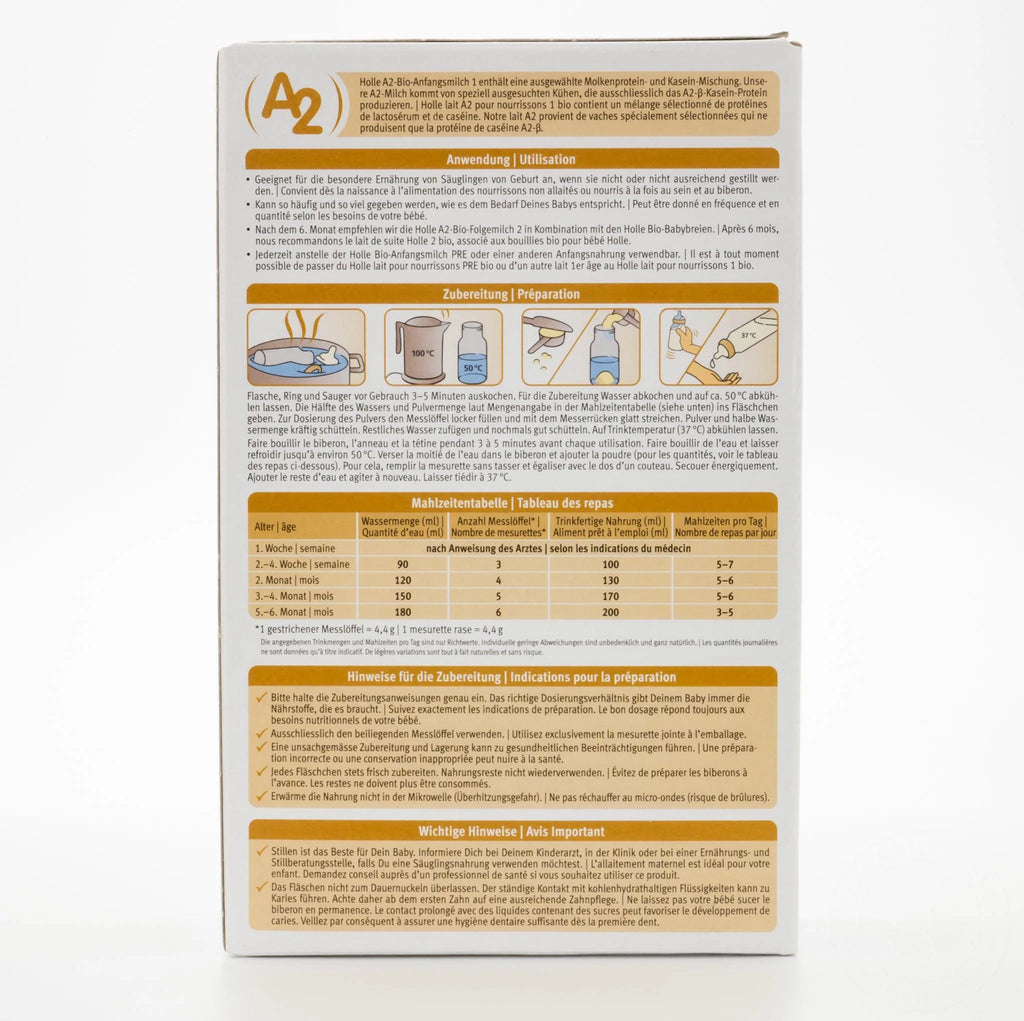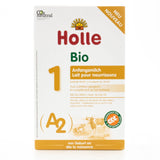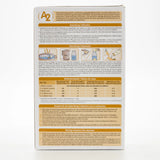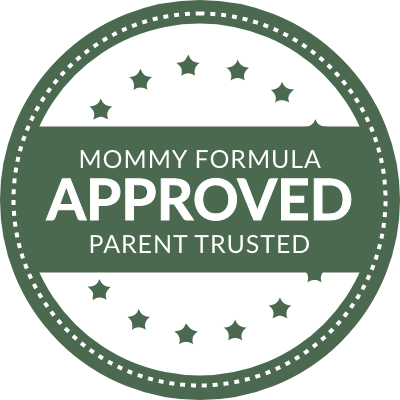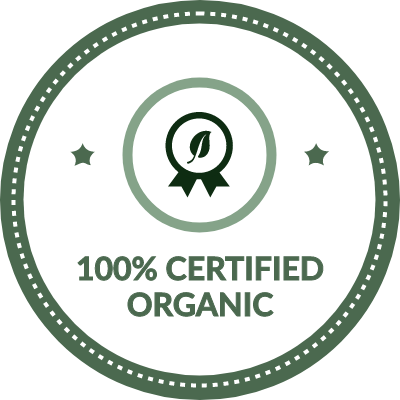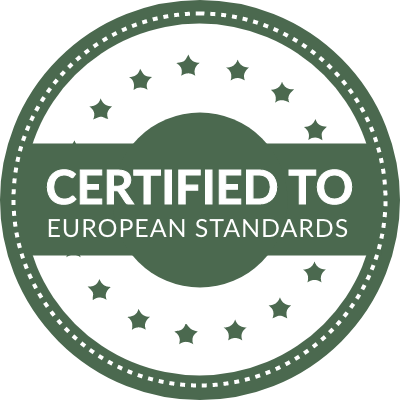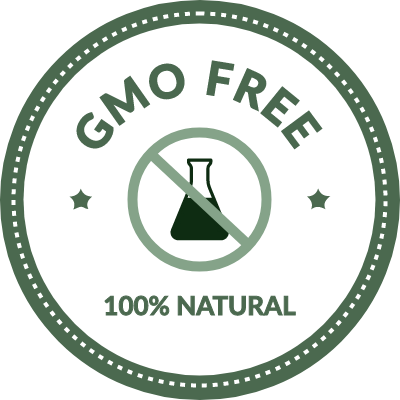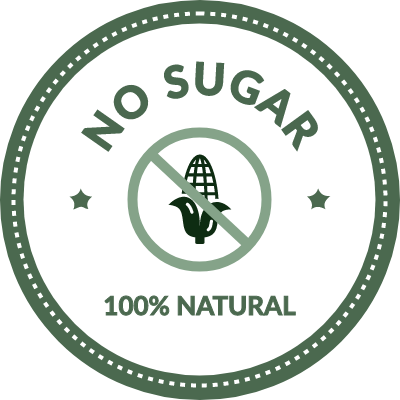Holle A2 Stage 1 Organic Baby Formula (0-6 Months) 400g

6-Month Expiration
Expiration date guaranteed to be at
least 6 months away.

Doctor's Orders
We recommend consulting your pediatrician before use.

Free Shipping
Orders over $50 are shipped free.

Rush Delivery
Need it fast? Overnight shipping is available at checkout.
Product Description
Holle is one of the oldest baby formula manufacturers in Europe and is long trusted by parents and infant health experts alike. From ethical preparation of their farm animals to ensuring zero additives are put in their formulas, Holle A2 Stage 1 formula is a great alternative to standard cow’s milk for troubled tummies. Holle’s A2 milk is specifically designed from selected cows that contain the A2 protein, rather than the more common A1. The primary difference between these two proteins is the chemical composition of their amino acids. A2 also has fewer saturated fat molecules which can make a difference on the digestive system. Studies in young children have shown the effectiveness of A2 in its ability to help ease common stomach issues. Holle’s A2 formula is derived from specially selected, DNA-tested cows.
Join Mommy Rewards to earn discounts and savings. Have questions for Mommy Formula? Contact us here.
Why Choose A2 Protein for Your Baby Formula?
Whether your baby has had issues with formulas based on regular cow’s milk before or you’re just looking to be as safe and healthy as possible, A2 milk formula could be the ideal choice for you. It allows you to provide your baby with all of the nutritional benefits of cow’s milk formula but with a lower risk of intolerance, discomfort, and tummy trouble, something which you will both appreciate.
The milk proteins found in A2 milk are also more comparable to those found in breast milk, which can make it easier for your baby to adjust if you’re transitioning from breast milk to formula, or plan to use one to supplement the other.
What's the Difference Between the A1 & A2 Proteins?
The primary difference between these two proteins is the chemical composition of their amino acids. A2 also has fewer saturated fat molecules which can make a difference in the digestive system. Studies in young children have shown the effectiveness of A2 in its ability to help ease common stomach issues. Holle’s A2 formula is derived from specially selected, DNA-tested cows.
Moms also are switching to Holle A2 formula as it is more similar to human breast milk and can be more easily supplemented. It is packed full of vitamins A, D, and C; as well as omega 3 & 6. Holle formula supports infant development and prides itself on providing balanced nutrition to little tummies.
Holle is EU-Certified
Following strict rules set out by the European Union, much more rigorous than the FDA, there is a reason Holle was one of the first formula manufacturers and has successfully grown over the past 6 decades. Farmed from Holle’s bio-dynamic farms, parents can feel confident knowing the product they are getting is of premium quality.
Holle A2 organic is perfect for infants up to 6 months, providing all the essential nutrients that your newborn needs to properly grow and develop.
Why Choose Holle A2 Infant Formula?
Holle A2 formula Stage 1 is EU organic certified and is a great alternative to standard cow milk for troubled tummies. Holle's certified organic infant formula is specifically designed from selected cows that contain the A2 beta-casein protein, rather than the more common A1.
Benefits of A2 Formula
A2 formula combines all the benefits of regular cow’s milk-based baby formulas with the added benefits of A2 milk, making it an ideal choice for many parents and their babies.
It provides the energy and high-quality protein needed for your baby’s growth and development, high levels of calcium necessary for strong and healthy bones, and plenty of other vitamins and minerals that will keep your baby happy and healthy.
What’s more, due to its unique casein protein constitution, it’s less likely to cause any issues such as an upset tummy, something no parent wants for their little one.
What are the Potential Side Effects of A2 Baby Formula?
While it is unlikely that your baby will experience any side effects from A2 formula, particularly when it’s manufactured by a reliable and trustworthy brand such as Holle, it's possible with any formula.
Most common side effects are mild, such as a runny nose, eczema, an upset tummy, and skin reactions. These are often caused by allergies, most commonly to cow’s milk. As many babies, and people in general, are intolerant to the A1 protein which is absent from A2 formula, it can carry a lower risk of these side effects.
More severe side effects are very rare but can happen. If your baby experiences any persistent side effects, has a strong adverse reaction to their formula, or you are otherwise concerned, you should contact your doctor or another appropriate healthcare professional. Likewise, premature babies are more prone to dangerous side effects and may have special nutritional needs, so if your baby is premature, be sure to seek and follow medical advice.
Prep
Step 1:
Wash hands and sterilize all equipment following the manufacturer's instructions.
Step 2:
Boil fresh drinking water(using the table below for guidance) and leave to cool for no longer than 30 minutes. Do not use artificially softened or repeatedly boiled water
Step 3:
Measure 2/3 of the water into a sterilized bottle (refer to the feeding guide).
Step 4:
Using only the scoop provided, add the correct number of scoops of formula powder - Normally 1 level scoop of powder to each fluid ounce of water (approx. 30ml). Level off the powder. Do not press down on the powder.
Step 5:
Place cap(s) back on the bottle and shake vigorously until all the powder has dissolved (usually 15 seconds).
Step 6:
Add the remaining water and mix well again so it is evenly distributed.
Step 7:
Cool down the formula to a drinking temperature of approx. 98.6°F (37°C) by holding the bottle under cool running water. Feed immediately. Always test the temperature of the milk before feeding every time.
| Age | Water | Scoops | Ready-Made Formula | Meals Per Day |
|---|---|---|---|---|
| 1-2 weeks | Consult your pediatrician | |||
| 2-4 weeks | 90ml (3 oz) |
3 | 100ml (3.4 oz) |
5-7 |
| 2 months | 120ml (4 oz) |
4 | 130ml (4.4 oz) |
5-6 |
| 3-4 months |
150ml (5.1 oz) |
5 | 170ml (5.7 oz) |
5-6 |
| 5-6 months |
180ml (6.1 oz) |
6 | 200ml (6.8 oz) |
3-5 |
Ingredients
Skimmed A2 Milk, Whey Powder (partly demineralized whey powder), Vegetable Oils (Palm Oil, Rapeseed Oil, Sunflower Oil), Lactose, Calcium Carbonate, L-Tyrosine, Potassium Chloride, Fish Oil3, Magnesium Chloride, M. Alpina Oil, Calcium Chloride, Calcium Hydroxide, Choline, Sodium Chloride, L-Tryptophan, Inositol, Iron Lactate, Vitamin C, Zinc Sulphate, Vitamin E, Niacin, Pantothenic Acid, Copper Sulphate, Vitamin A, Vitamin B1, Manganese Sulphate, Vitamin B6, Potassium Iodate, Folic Acid, Sodium Selenate, Vitamin K, Vitamin D, Biotin.
Nutrition
Holle A2 Stage 1 Organic Formula
Nutritional Facts (Per 100ml or 3.38oz / 3oz prepared)
- Energy 281/67 kJ/Kcal
- Total Fat 3.6 g
-
- Saturated fatty acids 1 g
- Monosaturated fatty acids 1.9 g
- Polyunsaturated fatty acids 0.6 g
- Linoleic acid (Omega 6) 549 mg
- Linoleic acid (Omega 3) 54 mg
- DHA 14.3 mg
- ARA 14.3 mg
- Total Carbs 7.4 g
-
- Sugar 7.4 g
- Lactose 7.4 g
- Protein 1.3 g
- Vitamin A 50.2 mcg (RE)
- Vitamin D 1.6 mcg
- Vitamin E 1.5 mg
- Vitamin K 7.8 mcg
- Vitamin C 15 mg
- Thiamine 0.081 mg
- Riboflavin 0.19 mg
- Niacin 0.41 mg
- Vitamin B6 0.059 mg
- Folic Acid 14.3 mcg
- Folate 23.8 mcg (DFE)
- Vitamin B12 0.15 mcg
- Biotin 1.4 mcg
- Pantothenic Acid 0.59 mg
- Potassium 86.7 mg
- Chloride 50.8 mg
- Calcium 64 mg
- Phosphorous 39.5 mg
- Magnesium 7.79 mg
- Iron 0.58 mg
- Zinc 0.42 mg
- Copper 0.05 mg
- Manganese 0.017 mg
- Flouride 0.0053 mg
- Selenium 3.8 mcg
- Iodine 13.6 mcg
- Sodium 25 mg
- Choline 20 mg
- Inositol 1.7 mg
- L-Carnitine 7.7 mg
What are the Signs of Formula Intolerance?
The major signs of formula intolerance include diarrhea, vomiting, constant crying or other signs of discomfort or pain, blood or mucus in your baby’s stool, and being slow to gain weight or losing weight. Other symptoms such as excessive gas, crying, fussiness, and spitting up may be present, but these are also very often present to some degree in healthy babies who are not currently affected by intolerances or allergies.
If your baby is currently having any of these issues, it may be a sign to try an alternative formula such as Holle A2, which may be less prone to causing intolerance issues. However, if these issues are severe, persistent, or concern you, it is highly recommended to discuss them with your pediatrician or pediatric nurse.
FAQs
How many ounces of prepared formula does one box make?
Each box of Holle contains 400g, or 14.1 oz, of dry formula. This can be used to prepare approximately 100 fl. oz of formula for your baby.
How much A2 stage 1 organic baby formula should you buy?
A2 milk
Of course, this is only an estimate and, as every baby is different, your baby may need more or less. If you’re using the formula to supplement breast milk as a source of nutrition, you can expect to use significantly less.
What is A2 milk?
A2 milk is a form of cow’s milk and, like all cow’s milk, it contains casein proteins. However, regular cow’s milk contains both the A1 and A2 forms of casein protein, but A2 milk contains only the A2 form. This can make A2 milk a healthier choice, as the A1 protein is often the cause of milk allergies and lactose intolerance, and is linked with a range of gastrointestinal issues.
How do I know if the formula isn't agreeing with my baby?
Common signs that the formula you’re using isn’t agreeing with your baby include diarrhea, bloating, and excessive gas, as well as more general signs such as developing a rash or having trouble sleeping after starting a new formula. While spitting up after meals occasionally is something that all babies do, if it happens after most meals that can also be a sign that the formula isn’t agreeing with them.
What is the difference between A2 milk and regular milk?
The difference between regular milk and A2 milk is the proteins they contain. Regular milk contains a mixture of both A1 and A2 casein proteins, whereas A2 milk only contains the A2 form. While both of these proteins can act as a source of nutrition for your baby, there is evidence that the A2 protein is less likely to cause tummy aches, intolerance issues, or other conditions.
Apart from the difference in proteins, A2 milk is very similar to regular cow’s milk and still contains all the protein, calcium, and other nutrients your baby needs.

